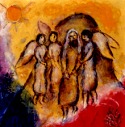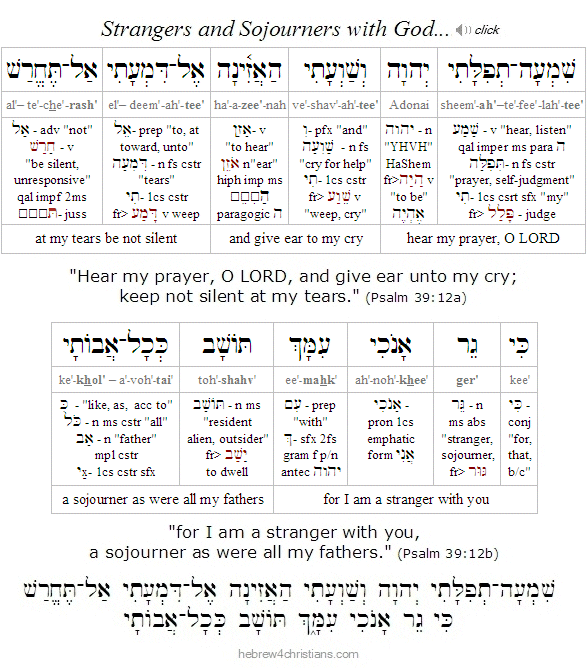|
|
|||||||||||||||||||||
 |
|||||||||||||||||||||
 |
|||||||||||||||||||||
|
|
||||||||||||||||||||||||||||
|
More space is given to the negotiation between Abraham and the Hittites for the Cave of Machpelah in Hebron (Gen. 23:3-16) than many other matters in Torah, since it represented both Abraham's faith in God's unconditional promise to be given the land of Canaan, as well as his faith in the resurrection from the dead. Indeed it was the death of Sarah that moved Abraham to "see and greet from afar" the fulfillment of God's promise, despite the appearances of this world (Heb. 11:13). Thus Abraham said to the sons of Chet: "I am a 'stranger and sojourner' (גֵּר־וְתוֹשָׁב) among you; sell me a burial site..." (Gen. 23:4). Abraham foresaw the City of God, the architecture of Zion to come, and by faith "he was looking forward to the city that has foundations, whose designer and builder is God" (Heb. 11:9-10). It is significant that after the great Exodus, the two faithful spies sent to scout the land (Joshua and Caleb) first visited the burial place of the patriarchs in Hebron to renew their conviction that the land belonged to Israel and could be retaken (Num. 13:21-22). The heart of faith affirms the promise of God, even in the face of the dust of death itself; it affirms that underlying the surface appearance of life is a deeper reality that is ultimately real and abiding. It "sees what is invisible" (2 Cor. 4:18) and understands (i.e., accepts) that the "present form of this world is passing away" (1 Cor. 7:31). Faith is the assurance of things hoped for, the conviction of things not seen (Heb. 11:1). טוֹב לָלֶכֶת אֶל־בֵּית־אֵבֶל tov · la·le·khet · el · bet · e·vel "It is better to go to the house of mourning
|
|
Hebrew for Christians |
|||||
|
|||||


